

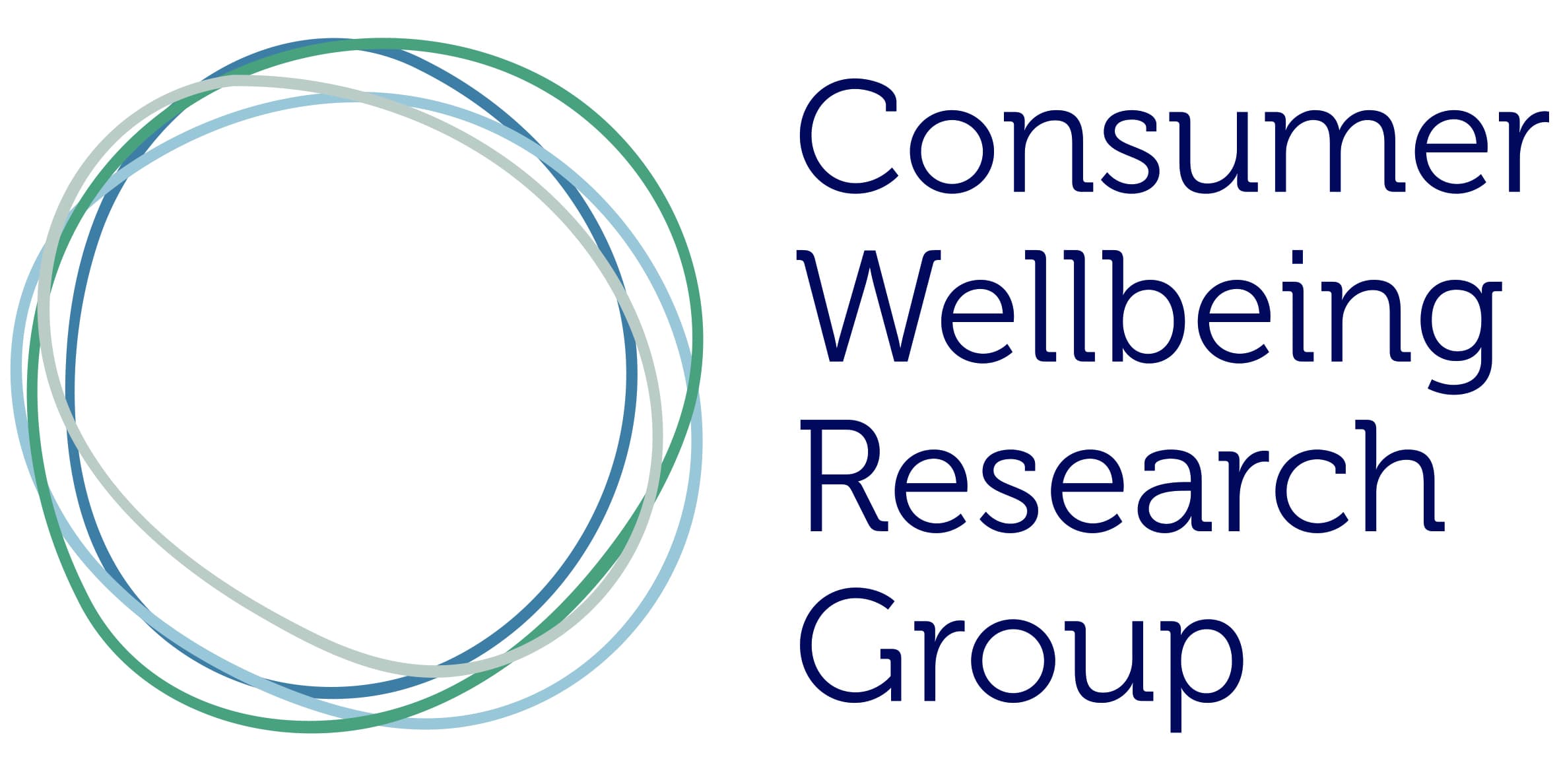
The Group’s mission is to address real world issues primarily through a social marketing lens using rigorous methodologies to produce insights, advice, and interventions that lead to positive economic, social and environmental impact.
Researchers within the group have undertaken projects related to positive or healthy ageing; the relationship between alcohol and depression; how alcohol brands engage consumers through social media; food literacy and families; the relationship between gambling and depression; family identity influences on gambling; athlete and consumer vulnerability in sport; financial wellbeing; and social marketing strategy.
The Group is committed to developing collaborative research partnerships with industry, health promotion agencies, government, and community groups. We also welcome the opportunity to engage with other researchers with common interests and complementary capabilities, both within RMIT and outside.


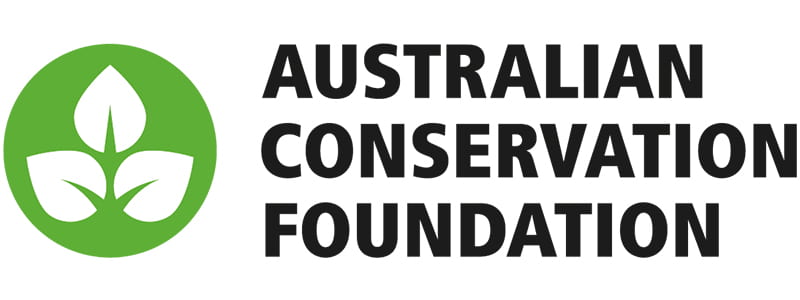

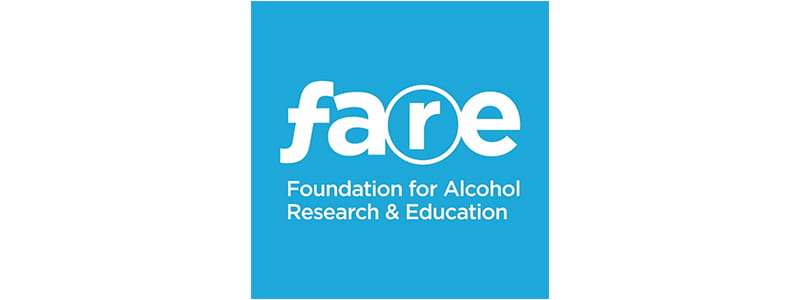
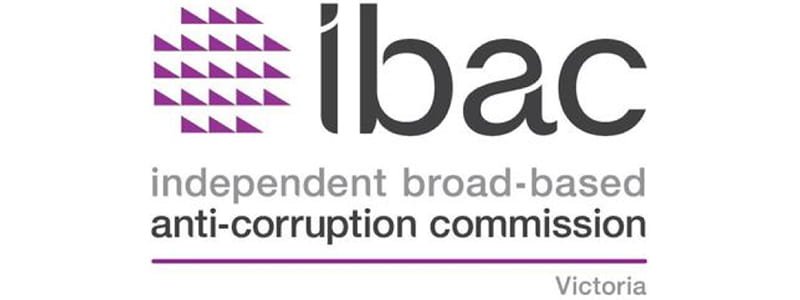


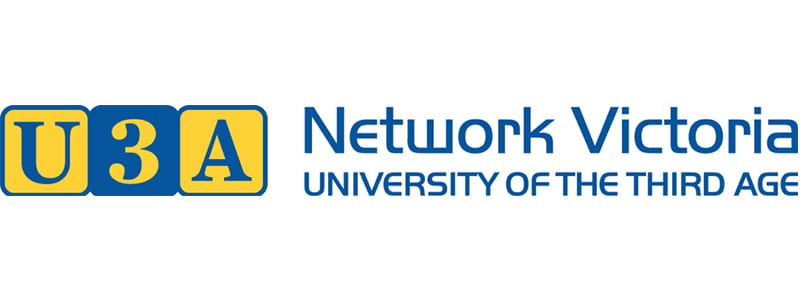


Foula’s research interests include consumption and choice behaviour, selection criteria, ageing, well-being and quality of life.
Mike’s research interests encompass consumer lifestyles and wellbeing, healthy middle aging, men’s health and wellbeing, and food literacy and healthy eating.
Kate’s interests include health and wellbeing-related consumption behaviours and influences particularly in relation to ageing, food wellbeing and sport.
Aleti, T., Figueiredo, B., Martin, D. M., & Reid, M. (2023). Socialisation agents’ use (fulness) for older consumers learning ICT. International Journal of Environmental Research and Public Health, 20(3), 1715.
Aleti, T., Figueiredo, B., Martin, D. M., & Reid, M. (2023). Digital Inclusion in Later Life: Older Adults’ Socialisation Processes in Learning and Using Technology. Australasian Marketing Journal, 0(0). https://doi.org/10.1177/14413582231187652
Figueiredo, Bernardo, et al (2023). "Commentary: Strength-based co-design that EMPOWERs–Lessons from codesigning with older adults." Journal of Services Marketing 37.9 : 1105-1112.
Figueiredo, B., Aleti, T., Martin, D. M., Reid, M., Sheahan, J., & Hjorth, L. (2023). Commentary: Strength-based co-design that EMPOWERs–Lessons from codesigning with older adults. Journal of Services Marketing, 37(9), 1105-1112
Kopanidis, F.Z (2024) Fostering Consumer Wellbeing Theory, Evidence and Policy (2024) Ch 9: Built Environment, Housing, and Consumer Well-Being: The Case of Older Consumers, Ed: Fatih Somez Springer Switzerland 978-3-031-59144-0
Kopanidis FZ, Reid M. (2023) 'Looking forward': An actionable framework for proactive health and well-being behaviours in Australian midlife women. Health Promotion Journal of Australia. 9. doi: 10.1002/hpja.816. Epub ahead of print. PMID: 37813350.
Westberg, K., Reid, M., Kopanidis, F. (2020). Age identity, stereotypes and older consumers’ service experiences, Journal of Services Marketing, 1 – 11
Sinclair, S., de Silva, A., Kopanidis, F.Z., Thomas, S. (2020) Measuring, Understanding and Improving Wellbeing Among Older People in Housing and Ageing Well, Springer eBook Springer Nature.
Kopanidis, F., Robinson, L., Shaw, M. (2016). ”I’m not old enough!” Why older single women are not engaging in retirement planning services In: Rediscovering the Essentiality of Marketing, Springer International Publishing, Switzerland.
Kopanidis, F.,Robinson, L.,Reid, M. (2016). To stay or to go? Postretirement housing choices of single baby boomer women, Journal of Women and Aging, 1 – 11.
Kopanidis, F, Robinson, L and Reid, M (2014), State of inertia: psychological preparation of single Australian and UK baby boomer women for retirement housing change, Journal of Women and Aging, 26 (3), 280-297.
Awaworyi Churchill, S.,Farrell, L. (2019). (In Press) Australia’s Gambling Epidemic: The Role of Neighbourhood Ethnic Diversity In: Journal of Gambling Studies, 1 – 22.
Westberg, K., Stavros, C., Smith, A., Munro, G., Argus, K. (2018). An examination of how alcohol brands use sport to engage consumers on social media, In: Drug and Alcohol Review, 37, 28 – 35.
Farrell, L. (2018). Understanding the relationship between subjective wellbeing and gambling behavior In: Journal of Gambling Studies, 34, 55 – 71.
Awaworyi Churchill, S., Farrell, L. (2018). The impact of gambling on depression: New evidence from England and Scotland In: Economic Modelling, 68, 475 – 483.
Churchill, S.A. and Farrell, L. (2017). Alcohol and depression: Evidence from the 2014 Health Survey for England, Drug and Alcohol Dependence, 180, 86-92.
Farrell, L. (2017) Understanding the relationship between subjective wellbeing and gambling behaviour, Journal of Gambling Studies doi: 10.1007/s10899-017-9692-4.
Westberg, K., Beverland, M., Thomas, S. (2017). The unintended normalization of gambling: Family identity Influences on the adoption of gambling In: Journal of Macromarketing, 1 – 18.
Farrell, L. (2012) Chasing Data: Sources of Data for the Study of Gambling Economics, Australian Economic Review, 45(4), 488-496.
Financial capability research in Australia (PDF, 755KB)
Professor Roslyn Russell, Dr Jozica Kutin & Tracey Marriner
School of Economics, Finance & Marketing

In 2019 the Australian Securities and Investments Commission (ASIC) commissioned RMIT University to produce a state-of-the-art report on the Australian research landscape relating to financial wellbeing and financial capabilities. This report reveals the topics where the research has concentrated, the knowledge gaps, challenges and where the research opportunities lie.
This report includes research published between 2015 and 2019. We found research clustered around the following themes: financial wellbeing definitions, financial vulnerability and resilience, financial capabilities, financial decision-making, retirement and superannuation, financial education, and financial wellbeing in vulnerable population groups (women, older people, younger people, Culturally and Linguistically Diverse communities, Indigenous Australians, and people with disability).
The strengths of the Australian research are:
Kutin, J. J., Russell, R., & Reid, M. (2022). ‘I didn’t even know it was a thing’: Australian young adults’ experience of economic abuse. Health promotion international, 37(6), daac152.
Russell, R., Kutin, J. & Marriner, T. (2020) Financial Capability Research in Australia. RMIT University. Financial Capability Research in Australia (PDF, 755KB)
Kutin, J., Reid, M., Russell, R. (2019). Special WSMC edition paper: What is this thing called money? Economic abuse in young adult relationships In: Journal of Social Marketing, 9, 111 – 128.
Kutin, J., Russell, R., Reid, M. (2017). Economic abuse between intimate partners in Australia: Prevalence, health status, disability and financial stress, Australian and New Zealand Journal of Public Health, 41, 269-274.
Farrell, L., Fry, R.L. and Risse, L. (2016). The significance of financial self-efficacy in explaining women’s personal financial behaviour, Journal of Economic Psychology, 54, 85–99.
Farrelly, F., Makkar, M. (2023). Augmenting the food experience through the projection of place: the case of Tasmania In: Current Issues in Tourism, 26, 1536 – 1553.
Dix, C. F., Brennan, L., McCaffrey, T. A., Reid, M., Molenaar, A., Barklamb, A., ... & Truby, H. (2022). Communicating health to young adults using social media: how, where, and when?. Nutrients, 14(14), 2967.
Salam, A., Mulye, R., & Rahman, K. (2022). Eating for the soul: a netnographic study of the ethical motives for organic food consumption. British Food Journal, 124(12), 4868-4887.
Wijayaratne, S., Westberg, K., Reid, M., Worsley, A. (2022). Developing food literacy in young children in the home environment In: International Journal of Consumer Studies, 46(4), 1165-1177.
Brennan, L., Chin, S., Molenaar, A., Barklamb, A. M., Lim, M. S., Reid, M., ... & McCaffrey, T. A. (2020). Beyond Body Weight: Design and Validation of Psycho-Behavioural Living and Eating for Health Segments (LEHS) Profiles for Social Marketing. Nutrients, 12(9), 2882.
Barklamb, A.M., Molenaar, A., Brennan, L., Evans, S., Choong, J., Herron, E., Reid, M. and McCaffrey, T.A., 2020. Learning the Language of Social Media: A Comparison of Engagement Metrics and Social Media Strategies used by Food and Nutrition-related Social Media Accounts. Nutrients, 12(9), p.2839.
Wijayaratne S, Westberg K, Reid M, Worsley A. (2020). A qualitative study exploring the dietary gatekeeper's food literacy and barriers to healthy eating in the home environment. Health Promotion Journal of Australia, 1–9, https://doi.org/10.1002/hpja.398.
Molenaar, A., Choi, T. S., Brennan, L., Reid, M., Lim, M. S., Truby, H., McCaffrey, T.A. (2020). Language of Health of Young Australian Adults: A Qualitative Exploration of Perceptions of Health, Wellbeing and Health Promotion via Online Conversations. Nutrients, 12(4), 887. https://www.mdpi.com/2072-6643/12/4/887
Brennan, L., Klassen, K., Weng, E., Chin,S., Molenaar, A., Reid, M., Truby, H., McCaffrey, T.A. (2020). A social marketing perspective of young adults’ concepts of eating for health: is it a question of morality? International Journal of Behavioral Nutrition and Physical Activity 2020 17:44 https://ijbnpa.biomedcentral.com/articles/10.1186/s12966-020-00946-3
Reid, M., Chin, S., Molenaar, A., Brennan, L., Truby, H., & McCaffrey, T. (2019). Learning from Social Marketing: Living and Eating for Health Segments (LEHS) and Social Media Use (P16-023-19). Current Developments in Nutrition, 3(Supplement_1), nzz050-P16. https://academic.oup.com/cdn/article/3/Supplement_1/nzz050.P16-023-19/5516949
Klassen, K.,Douglass, C.,Brennan, L.,Truby, H.,Lim, M. (2018). Social media use for nutrition outcomes in young adults: A mixed-methods systematic review In: International Journal of Behavioral Nutrition and Physical Activity, 15, 1 – 20.
Klassen, K., Borleis, E., Brennan, L., Reid, M., Mccaffrey, T.,Lim, M. (2018). What do people “like”? An analysis of social media strategies used by food industry brands, lifestyle brands and health promotion organizations on Facebook and Instagram In: Journal of Medical Internet Research, 20, 1 – 9.
Lombard, C., Brennan, L., Reid, M., Klassen, K., Palermo, C., Walker, T., Lim, M., Dean, M., McCaffrey, T., Truby, H. (2018). Communicating health-Optimising young adults’ engagement with health messages using social media: Study protocol In: Nutrition & Dietetics, 75, 509 – 519.
Wijayaratne, S., Reid, M., Westberg, K., Worsley, A., Mavondo, F. (2018). Food literacy, healthy eating barriers and household diet In: European Journal of Marketing, 52, 2449 – 2477.
Burton, M., Reid, M., Worsley, A. and Mavondo, F. (2017). Food skills confidence and household gatekeepers’ dietary practices. Appetite, 108, 183-190.
Reid, M., Worsley, A., Mavondo, F. (2015). The obesogenic household: Factors influencing dietary gatekeeper satisfaction with family diet, Psychology and Marketing, 32, 544-557.
Micallef, D., Parker, L., Brennan, L., Schivinski, B. & Jackson, M. (2024). Emerging adult gamers and their diet – a socio-ecological approach to improve health behaviour, Journal of Social Marketing,14(1), 95-113.
Young, C., Cover, R., Parker, L. & Ostapets, K. (2024). Conveying COVID-19 Health Information with Culturally and Linguistically Diverse Social Media Influencers. Journal of Intercultural Studies, 0(0), 1-16.
Bhogal-Nair, Anoop, Andrew M. Lindridge, Mark Tadajewski, Mona Moufahim, Daniela Alcoforado, Mohammed Cheded, Bernardo Figueiredo, and Chihling Liu (2023) . "Disability and well-being: Towards a capability approach for marketplace access." Journal of Marketing Management: 1-30.
Blijlevens, J., Elkins, M., Neelim, A. (2023). Behavioural Business: The Psychology of Decisions in Economic, Business and Policy Contexts. In: Blijlevens, J., Elkins, M., Neelim, A. (eds). Springer Nature.
Brennan, L., Francis, C., Jenkins, E. L., Schivinski, B., Jackson, M., Florence, E., Parker, L., Langley, S., Lockrey, S., Verghese, K., Phan-Le, N. T., Hill, A. & Ryder, M. (2023). Consumer perceptions of food packaging in its role in fighting food waste, Sustainability, 15(3), 1917.
Cover, R., Parker, L., Young, C. & Ostapets, K. (2023). Entertaining information: Third-party influencers’ role in COVID-safety health communication, Media International Australia, 0(0), 1-15.
Micallef, D., Parker, L., Brennan, L., Schivinski, B., & Jackson, M. (2022). Improving the health of emerging adult gamers – a scoping review of influences. Nutrients, 14, 2226.
Phan-Le, N. T., Brennan, L. & Parker, L. (2022). The search for scientific meaning in mindfulness research: insights from a scoping review. PLoS ONE, 17(5), e026492.
Schuster, L.,Gurrieri, L.,Dootson, P. (2023). Emotions of burden, intensive mothering and COVID-19 vaccine hesitancy, Critical Public Health, 33:2, 218-229, DOI: 10.1080/09581596.2022.2061917
Spotswood, F., & Gurrieri, L. (2023). Understanding health inequalities through a practice-oriented ‘capabilities’ perspective. Motherhood and leisure time physical activity. Sociology of Health & Illness, 45(2), 423–445. https://doi.org/10.1111/1467-9566.13585
Gurrieri, L., Drenten, J. (2019). Visual storytelling and vulnerable health care consumers: normalising practices and social support through Instagram, Journal of Services Marketing, 33, 702 – 720.
Gurrieri, L.,Gordon, R.,Barraket, J.,Joyce, A.,Green, C. (2018). Social marketing and social movements: creating inclusive social change coalitions, Journal of Social Marketing, 8, 354 – 377.
Parker, L., Sidik, M., Truong, T. (2020). Towards universal helmet use: Advocating for change Vietnam. In Knox, K., Kubacki, K., Rundle-Thiele, S. (Eds.). Stakeholder Involvement in Social Marketing: Challenges and Approaches to Engagement. Abingdon, UK: Routledge.
Trong Nhan, L., Parker, L., Son, M., Parker, E., Moore, M., Sidik, M., Draisin, N. (2019). Evaluation of an integrated multisector campaign to increase child helmet use in Vietnam In: Injury Prevention, 25, 206 – 210.
Duong, H., Parker, L. (2018). Going with the flow: Young motorcyclists’ misperceived norms and motorcycle speeding behaviour In: Journal of Social Marketing, 8, 314 – 332.
Brennan, L., Donnar, G., Parker, L., & Alessi, N. (2018). “I know what I’m doing”: communicating a safety message to change the attitudes and behaviours of older men. In Hastings & Domegan. Social Marketing: Rebels with a cause (3rd ed.) (pp.406-419). Abingdon: Routledge.
Fry, M.-L., Previte, J., and Brennan, L. (2017). Social change design: Disrupting the benchmark template Journal of Social Marketing, 7(2), online available http://www.emeraldinsight.com/doi/abs/10.1108/JSOCM-10-2016-0064.
Brennan, L., Previte, J., and Fry, M.-L., (2016), Social marketing’s consumer myopia: Embracing a systems view of social change markets, Journal of Social Marketing, 6(4), 219-239.
Parker, L., Brennan, L. and Nguyen, D. (2015). Social Marketing: Cambodia, Indonesia, the Philippines and Vietnam. In C. Rowley & B. Nguyen (Eds.) Ethical and Social Marketing in Asia. Woodhead Chandos Publishing. pp.161-191.
Brennan L, Fry M-L and Previte J. (2015). Strengthening social marketing research: Harnessing “insight” through ethnography. Australasian Marketing Journal, 23(4), 286-293.
Parker, L., Brennan, L., & Nguyen, D. (2015). Social Marketing: Cambodia, Indonesia, the Philippines and Vietnam. In Nguyen, B. & Rowley, C. (Eds.), Ethical and Social Marketing in Asia (pp.161-192). Amsterdam: Elsevier.
Brennan, L., Binney, W., Parker, L., Aleti, T., & Nguyen, D. (2014). Social marketing and behaviour change: Models, theory and applications, Cheltenham: Edward Elgar Publishing.
Brennan, L., & Parker, L. (2014). Beyond behaviour change: social marketing and social change, Journal of Social Marketing, 4(3), 194-197.
Nguyen, D., Parker, L., Brennan, L. and Clements, A. (2014). The taboo question: Condom retailing in Vietnam and social marketing implications, Journal of Social Marketing, 4(2).
Parker, L. (2013). Personal hygiene, environmental sanitation: A Case of Social Marketing in the Mekong Delta. In L. Brennan, L. Parker, L., T. Aleti Watne, J. Fien, T. H. Duong, & M. A. Doan (Eds.), Growing sustainable communities: A development guide for Southeast Asia (pp. 241-253). Prahran: Tilde University Press.
Watne, T., and Brennan, L. (2012). Behavioural change starts in the family: The role of family communication and implications for social marketing. Journal of Nonprofit & Public Sector Marketing, 23(4), 367-386.
Kopanidis, F.Z. (2023), “Having our say”: a micro-level perspective in understanding sports clubs’ membership and active participation", Journal of Social Marketing, Vol. 13 No. 4, pp. 473-489.
Prasch, J.E., Neelim, A., Carbon C.-C., Schoormans, J.P.L,. & Blijlevens, J. (2022). Gamified behavioural intervention towards social closeness: An application of the dual identity model and active categorisation. Frontiers in Psychology.
Westberg, K. Stavros, C. Parker, L. Druce, A. Martin, D. Worsley, A. Reid, M. and Fouvy, D. (2022), 'Promoting healthy eating in the community sport setting: a scoping review', in Health Promotion International, Oxford University, United Kingdom, vol. 37, no. 1, pp. 1-17.
Diaz Ruiz, C., Makkar, M. (2021). Market bifurcations in board sports: How consumers shape markets through boundary work In: Journal of Business Research, 122, 38 – 50.
Fitzgerald (née Ng), S.H.M. (2021). The Lotus in the Mud: A Conceptual Model of Livestream Yoga Service Experience. In: Lee, J., Han, S.H. (eds) The Future of Service Post-COVID-19 Pandemic, Volume 1. The ICT and Evolution of Work. Springer, Singapore. https://doi.org/10.1007/978-981-33-4126-5_7
Smith, A., Stavros, C., Westberg, K. (2020). Cognitive Enhancing Drugs in Sport: Current and Future Concerns, Substance Use & Misuse, 55, 2064 – 2075.
Smith, A.C.T., & Stavros, C. (2020). Exploring the Progressive Use of Performance Enhancing Substances by High-Performance Athletes. Substance Use & Misuse. doi.org/10.1080/10826084.2019.1711412
Smith, A., Stewart, B., Westberg, K., Stavros, C. (2018). Performance and Image Enhancing Drugs and Substances, Routledge, New York, United States.
Heffernan, M.,Stavros, C.,Westberg, K.,Dobele, A.,Smith, A. (2018). Australia In: Routledge Handbook of Physical Activity Policy and Practice, Routledge International Handbooks, United Kingdom.
Westberg, K., Stavros, C., Smith, A., Newton, J., Lindsay, S., Kelly, S., Beus, S., Adair, D. (2017). Exploring the wicked problem of athlete and consumer vulnerability in sport, Journal of Social Marketing, 7 (1), 94 – 112.
Farrell, L., Hollingsworth, B., Propper, C. and Shields, M. (2014). The socioeconomic gradient in physical activity: Evidence from one million adults in England, Social Science and Medicine, 123, 55-63.
Smith, A., Stavros, C., Westberg, K., Wilson, B., Boyle, C. (2014). Alcohol-related player behavioral transgressions: Incidences, fan media responses, and a harm-reduction alternative, International Review for the Sociology of Sport, 49, 400 – 416.


RMIT University acknowledges the people of the Woi wurrung and Boon wurrung language groups of the eastern Kulin Nation on whose unceded lands we conduct the business of the University. RMIT University respectfully acknowledges their Ancestors and Elders, past and present. RMIT also acknowledges the Traditional Custodians and their Ancestors of the lands and waters across Australia where we conduct our business - Artwork 'Sentient' by Hollie Johnson, Gunaikurnai and Monero Ngarigo.
Learn more about our commitment to Indigenous cultures